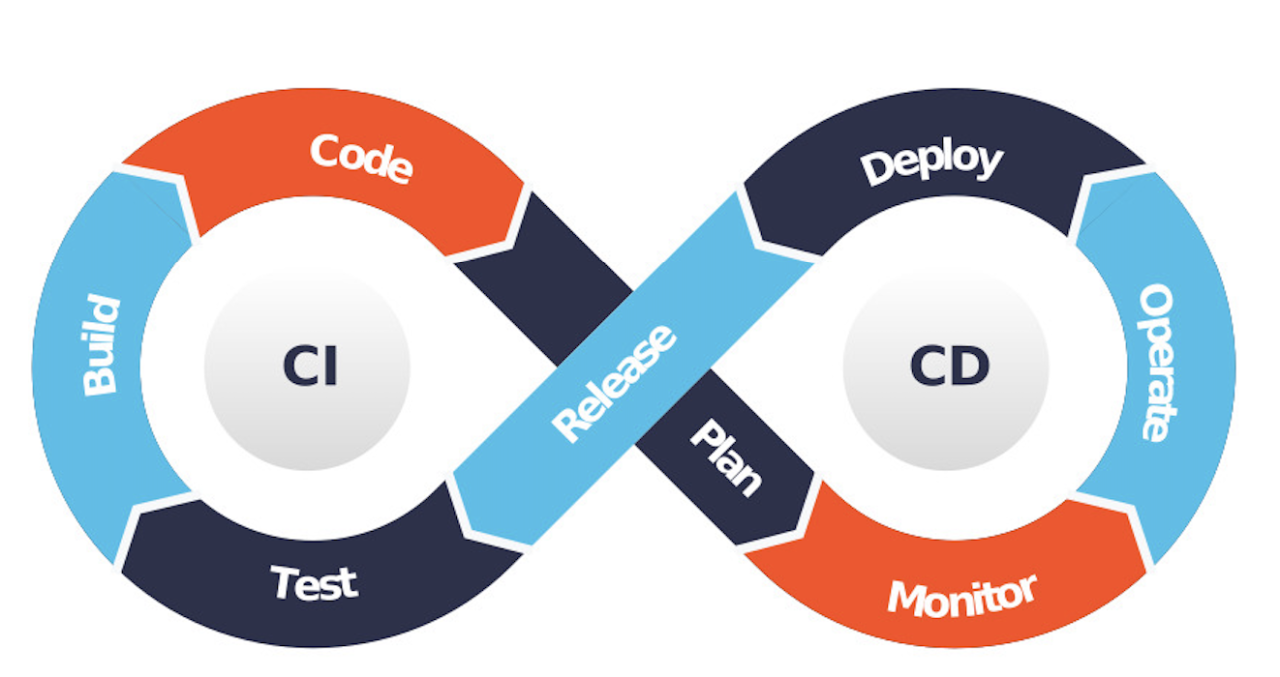Are you curious to know how DevOps and CI/CD integrate with API Management? Understanding how DevOps and CI/CD integrate with API Management is crucial for modern software development teams to streamline workflows, enhance collaboration, automate processes, ensure scalability, and efficiently deliver reliable and secure API-driven applications.
One crucial aspect of this Integration involves incorporating API (Application Programming Interface) management into the process.
This article explores how DevOps and CI/CD methodologies seamlessly integrate with API management, fostering collaboration, automation, and scalability in software development.
- What is DevOps?
DevOps is a culture and practice that emphasizes collaboration and communication between software development (Dev) and IT operations (Ops) teams. Its goal is to automate the software delivery process, enabling faster and more reliable releases.
- The Role of CI/CD:
CI/CD is a cornerstone of DevOps, ensuring that code changes are automatically built, tested, and deployed to production environments. Continuous Integration involves automatically merging code changes into a shared repository, while Continuous Deployment automates releasing these changes to production.
- Importance of API Management:
APIs serve as the bridge between different software systems, allowing them to communicate and share data. Effective API management ensures security, scalability, and reliability in API usage, making it essential for modern applications.
- Aligning DevOps with API Management:
Integrating DevOps with API management involves incorporating API lifecycle management into the development pipeline. This includes designing, documenting, testing, deploying, and monitoring APIs alongside application code changes.
- Automating API Testing:
CI/CD pipelines can automate API testing, ensuring APIs function correctly and meet performance expectations. Automated tests can validate API endpoints, payloads, authentication mechanisms, and error handling, reducing the risk of regressions.
- Version Control for APIs:
Like application code, APIs require version control to manage changes and track their evolution over time. Versioning APIs ensures backward compatibility and allows developers to introduce new features without disrupting existing integrations.
- Containerization and Microservices
Containerization technologies like Docker facilitate deploying applications and APIs in lightweight, portable containers. Microservices architecture complements DevOps and API management by breaking down applications into smaler, independently deployable components.
- Infrastructure as Code (IaC):
IaC enables the automation and management of infrastructure resources using code. By defining infrastructure requirements in code, teams can version control, test, and deploy infrastructure changes alongside application and API updates.
- Continuous Monitoring and Analytics:
DevOps practices emphasize continuously monitoring applications and infrastructure to detect and address issues promptly. Similarly, API management platforms offer monitoring and analytics capabilities to track API usage, performance, and security metrics.
- Security and Compliance:
Security is paramount in both DevOps and API management. Integrating security measures such as access controls, authentication, and encryption ensures that APIs and applications remain protected against threats and comply with regulatory requirements.
- Collaborative Development:
DevOps promotes collaboration between developers, operations teams, and other stakeholders. Similarly, API management fosters collaboration by providing centralized repositories for API documentation, usage guidelines, and developer portals.
- Scalability and Flexibility:
The combination of DevOps, CI/CD, and API management enables organizations to scale their development and deployment processes efficiently. By automating repetitive tasks and leveraging cloud-native technologies, teams can rapidly adapt to changing demands and deploy updates.
- Continuous Feedback Loop:
Feedback is integral to DevOps, allowing teams to improve processes and continuously deliver value to customers. Incorporating feedback mechanisms into API management ensures that APIs meet the evolving needs of developers, partners, and end-users.
- Cultural Shift and Training:
Implementing DevOps and CI/CD practices alongside API management requires a cultural shift within organizations. Training programs, workshops, and knowledge-sharing sessions can empower teams to embrace automation, collaboration, and innovation.
- Governance and Compliance:
DevOps and API management integration ensures adherence to governance policies and regulatory requirements. Centralized governance mechanisms allow organizations to enforce standards, manage access controls, and audit API usage, mitigating compliance risks.
- Disaster Recovery and High Availability:
DevOps principles promote resilience and reliability in software systems. API management platforms offer features like disaster recovery and high availability, ensuring that APIs remain accessible and functional even during unforeseen events or infrastructure failures.
- Cross-Functional Teams:
DevOps encourages cross-functional collaboration among development, operations, QA, and security teams. Similarly, API management facilitates collaboration between technical and business stakeholders, aligning objectives and priorities to deliver value-driven API solutions.
- Continuous Improvement and Optimization:
DevOps fosters a culture of continuous improvement through feedback loops and iterative development cycles. Likewise, API management enables organizations to analyze usage patterns, identify bottlenecks, and optimize API performance and resource utilization.
- Ecosystem Integration:
DevOps and API management enable seamless integration with third-party services, partners, and ecosystems. APIs serve as the interface for integrating disparate systems and data sources, empowering organizations to innovate and extend their reach in the digital ecosystem.
Conclusion:
In short, Integrating DevOps and CI/CD with API management revolutionizes how organizations develop, deploy, and manage software applications. This integration streamlines the development lifecycle, accelerates time-to-market, and enhances the software delivery process by fostering collaboration, automation, and scalability. Embracing these practices is essential for staying competitive in today’s fast-paced digital landscape.












